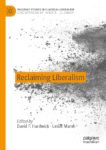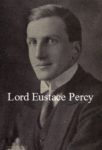When is a “Coop” not really a cooperative? The short answer is whenever the actual activity of the “cooperative” is not carried out by the members but by employees. The problem is, of course, not in cooperation per se but in the hiring, employing, renting, or leasing of people to carry out the supposedly “cooperative” activities of the “cooperative.”
Historical and Modern Arguments about Contractual Slavery
The overall conclusion is that any institution or practice—human trafficking is a modern case in point—that, in effect, treats a person as a non-person, as only a means instead of as an end-in-themselves, violates their inalienable rights and is illegitimate, even with consent.
The Semantics Differentiation of Minds and Machines
This is Chapter 7 from my book: Ellerman, David. 1995. Intellectual Trespassing as a Way of Life: Essays in Philosophy, Economics, and Mathematics. Lanham MD: Rowman & Littlefield.
The watershed event in the philosophy of mind (particularly as it relates to artificial intelligence or AI) during the last decade was John Searle’s 1980 article “Minds, Brains and Programs.” This chapter was written about the same time and independently of Searle’s but it was updated in 1985 to take Searle’s work into account. Searle’s exposition was based on his now-famous “Chinese Room Argument”—an intuition pump that boils down to a nontechnical explanation of the difference between syntax (formal symbol manipulation) and semantics (using symbols based on their intended interpretation). Searle argues, in opposition to “hard AI,” that computers can at best only simulate but never duplicate minds because computers are inherently syntactical (symbol manipulators) while the mind is a semantic device.
The syntax-semantics distinction is hardly new; it was hammered out in philosophical logic during the first part of this century and it is fundamental in computer science itself. The purpose of our paper is to analyze the minds-machines question using simple arguments based on the syntax-semantics distinction from logic and computer science (sans “Chinese Room”). I arrive at essentially the same results as Searle—with some simplification and sharpening of the argument for readers with some knowledge of logic or computer science.
Double-Entry Bookkeeping: Mathematical Formulation and Generalization
This is Chapter 6 from my book: Ellerman, David. 1995. Intellectual Trespassing as a Way of Life: Essays in Philosophy, Economics, and Mathematics. Lanham MD: Rowman & Littlefield.
The essay on double-entry bookkeeping (DEB) is intellectually interesting for several reasons in spite of the well-known soporific aspects of bookkeeping. Several of the essays in the volume explicitly employ the analogy between additive and multiplicative operations (i.e., the common group-theoretic properties of additive groups of numbers and multiplicative groups of nonzero numbers). For instance, given the system of multiplying whole numbers or integers, there is no operation inverse to multiplication (i.e., there is no division). But there is a standard method of enlarging the system to allow division. Consider pairs of whole numbers a/b (with b ¹ 0) and define multiplication in the obvious way: (a/b)(c/d) = (ac)/(bd). These ordered pairs of integers are the “fractions” and they allow the operation of division (“multiply by the reciprocal”).
Now substitute addition for multiplication. We start with the additive system of positive numbers along with zero (i.e., the non-negative numbers) where is no inverse operation to addition (i.e., there is no subtraction). To enlarge the domain of non-negative numbers to include subtraction, consider ordered pairs [a // b] and define addition in the analogous way: [a // b] + [c // d] = [a+c // b+d]. This enlarged system of additive operations on ordered pairs of non-negative numbers allows subtraction (“add on the reversed pair”). The origin of the intellectual trespassing into DEB was the observation that these ordered pair were simply the T-accounts of DEB.
Aside from illustrating the interplay of additive-multiplicative themes, the essay illustrates one of the most astonishing examples of intellectual insulation between disciplines, in this case, between accounting and mathematics. Double-entry bookkeeping was developed during the fifteenth century and was first recorded as a system by the Italian mathematician Luca Pacioli in 1494. Double-entry bookkeeping has been used as the accounting system in market-based enterprises of any size throughout the world for several centuries. Incredibly, however, the mathematical basis for DEB is not known, at least not in the field of accounting.
The Kantian Person/Thing Principle in Political Economy
This is Chapter 4 in my book: Ellerman, David. 1995. Intellectual Trespassing as a Way of Life: Essays in Philosophy, Economics, and Mathematics. Lanham MD: Rowman & Littlefield.
Ethical theories can be broadly grouped into utilitarian theories and rights-based theories. Modern economics is so thoroughly utilitarian that most economists would be hard-pressed to cite the application of a rights-based argument to economic institutions. Yet the normative principles outlined in the first two chapters, the labor theory of property and the de facto theory of inalienability, are squarely within the rights-based tradition. The democratic principle of self-determination is also a closely allied rights-based theory [see Ellerman 1992].
The Libertarian Case for Slavery (A Spoof on Nozick)
This is Chapter 3 from my book: Ellerman, David. 1995. Intellectual Trespassing as a Way of Life: Essays in Philosophy, Economics, and Mathematics. Lanham MD: Rowman & Littlefield.
Liberalism is living a lie. It pretends that the contract to sell all of one’s labor, the self-enslavement contract, is an invalid contract beyond the pale while the contract to sell one’s labor piecemeal (by the hour, day, month, or year) is a perfectly valid contract above reproach. The self-enslavement contract is one of the skeletons in liberalism’s intellectual closet. Defenders of liberal capitalism are quick to accept even the most superficial arguments against voluntary slavery just to shove the issue back in the closet—just so long as the arguments do not carry over to the current contract to rent oneself out, the employer-employee contract. Who wants to be seen as, in effect, defending voluntary slavery by showing how most arguments against the self-sale contract are baseless (aside from one “J. Philmore”)?
Reclaiming Democratic Classical Liberalism
The argument shows that the classical liberal endorsement of sovereign individuals acting in the marketplace generalizes to the joint action of individuals as the principals in their own organizations and associations.
Source-paper on theory of inalienability
This paper is only a collection of likenesses and representative quotations from thinkers about inalienability and inalienable rights starting from Antiquity down to the present.
Some Less Well-Known Supporters of Workplace Democracy
This is a collection of likenesses or pictures and some representative quotations of a number of less well-known supporters (all dead white men) of workplace democracy.
Talk: Neo-abolitionism and Marxism
These are the slides for a talk given in Munich in November 2017 at a conference on the Russian Revolution. The basic argument is that much of what John Stuart Mill said in the middle of the 19th century still sounds radical today. The reason is that Marx, Lenin, and the Russian Revolution set back the Left for a century and a half.




